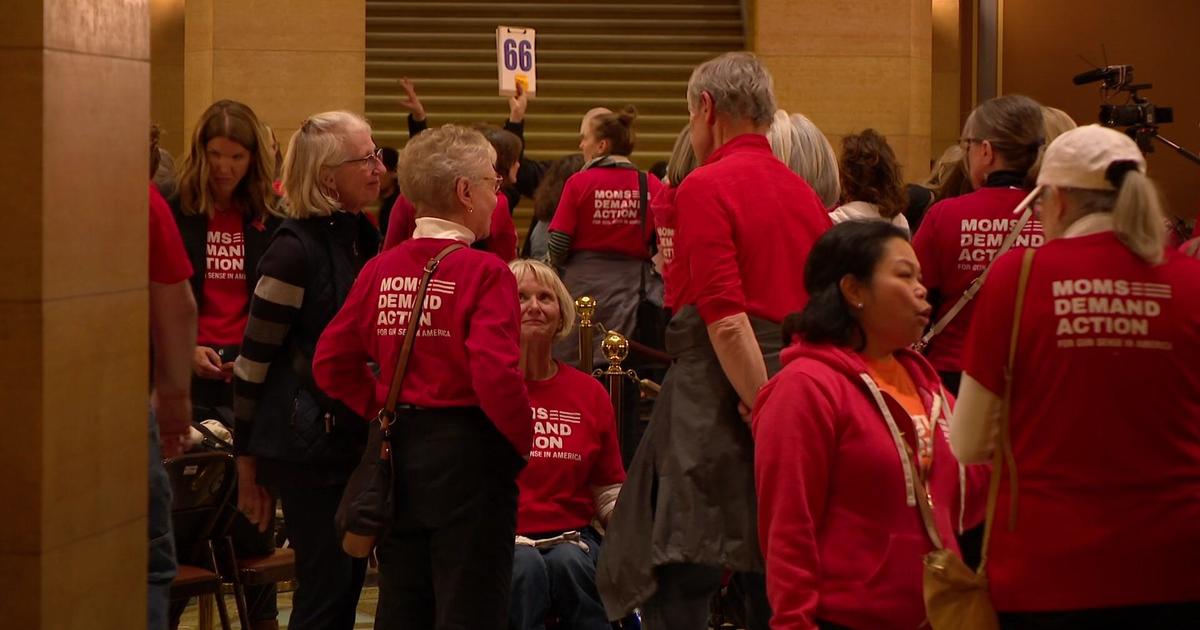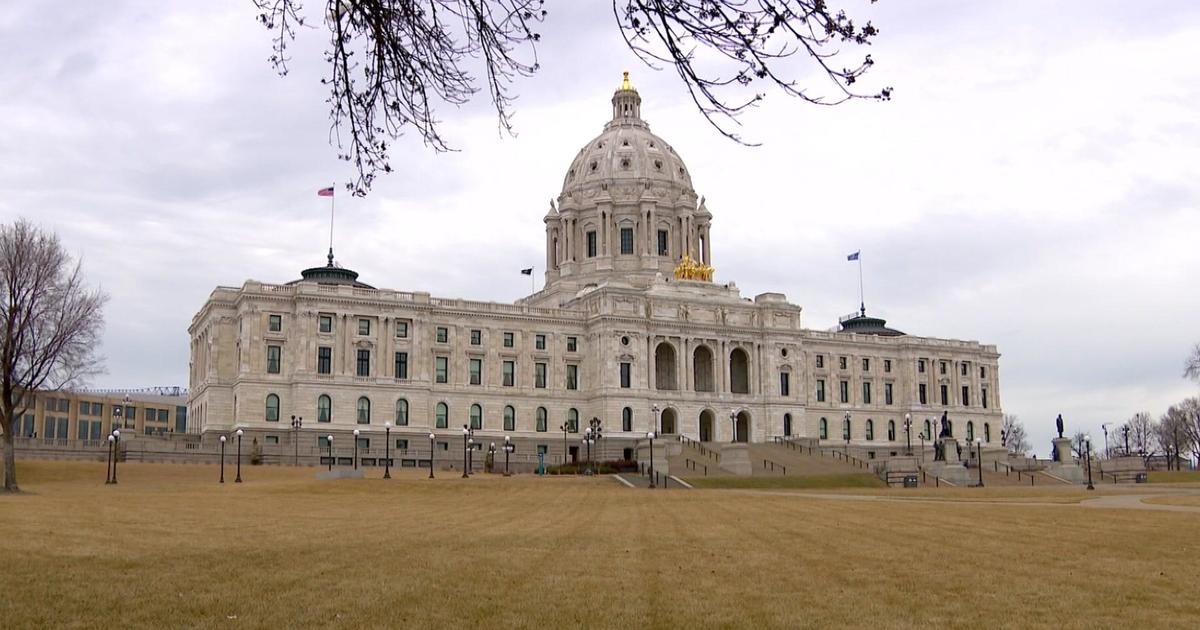House Democrats Sketch Outline Of Own Minn. Budget
ST. PAUL, Minn. (AP) -- Minnesota House Democrats upped the ante Tuesday in the debate over taxes on the rich, saying they would try to impose a temporary surcharge on the top 1 percent of earners as a way to pay off the state's $800 million debt to public schools.
The temporary tax on income above $500,000 would come on top of an expected permanent increase in tax rates for those deemed wealthy, likely those in the top 2 percent to 5 percent on the annual earnings scale. The surcharge, which House Speaker Paul Thissen said would cease once schools are made whole, is part of a larger framework that sets the tone for House budget deliberations.
"Our plan acknowledges that the bill we owe to our schools is past due," said Thissen, DFL-Minneapolis. "We owe our school kids over $800 million and the right thing to do is pay them back."
Democrats hold the majority in both the Minnesota House and Senate. Gov. Mark Dayton and Senate Democrats haven't expressed an urgency to accelerate an aid repayment to schools. Current law dictates that surplus tax collections go for that purpose, and the amount owed to schools has actually shrunk considerably in the last four months.
The House surcharge approach goes further than the income tax proposal from Dayton. The Democratic governor has recommended a new 9.85 percent rate — two points higher than the current maximum tax — for taxable income above $250,000 for couples and $150,000 for single filers.
Thissen said the size of the surcharge still needs to be worked out, but he expected it would be a couple of percentage points. It would go away within two years, he said.
House Minority Leader Kurt Daudt, R-Crown, said a double-digit top rate would make Minnesota an outlier and could fall on some businesses that file taxes through their owners' personal income returns. He also said legislators have a bad track record when it comes to letting temporary taxes expire.
"There's an old saying that there's nothing more permanent than a temporary tax," Daudt said.
Senate Majority Leader Tom Bakk, DFL-Cook, had some initial qualms, too. "My general feeling relative to tax policy is, it's probably helpful to not be in the top five in any tax category," he said.
Senate Democrats planned to release their own budget blueprint on Wednesday.
House Democratic leaders argued they were being forthright in repairing a state budget that has been patched together over the years, one that shows a projected $627 million deficit for the coming two years.
Aside from the temporary surcharge, Democratic leaders said they were angling for about $1.6 billion in additional tax revenue to erase the shortfall and satisfy $1 billion in new spending. The plan would also give more schools money for all-day kindergarten programs, beef up a property tax refund program and bolster government-administered business grants and worker training.
House Education Finance Committee Chairman Paul Marquart, DFL-Dilworth, said the proposal would have the state pick up the full cost for all-day kindergarten for any district that wants it. Currently, some districts get allowances but others divert funds from other parts of their budgets or charge parents a premium for full-day classes.
"When you invest early you raise graduation rates, you raise performance rates, you lower the achievement gap," Marquart said. "We have to move the dial. We have to make a difference in every student's life."
Heidi Diercks used to teach an all-day kindergarten class in the Kasson-Mantorville school district before cost pressures led the district to pare back to a standard half day. The district does have a "Kindergarten Plus" program, an all-day equivalent, but parents must pay a $222 monthly fee for the added hours in a different setting than a kindergarten class.
Diercks said neighboring districts are touting their full-day programs as a way to lure students. Diercks, who now teaches first grade, said she worries that area children are missing out.
"The kids who need it most can't afford it," she said.
Fewer than six in 10 Minnesota kindergarteners are in an all-day program, Marquart said. It will cost the state about $2,200 per child to compensate schools for each one added to a full-day program.
The kindergarten money is among $700 million in new education investments in the House proposal. It's separate from the pot being contemplated to repay the school IOUs.
The state slowed payments to schools to balance past Minnesota budgets. In all, $2.7 billion in aid was temporarily held back, leaving districts to tap reserves or take out short-term loans. But $1.9 billion has been repaid so far.
Dayton says the state is "on track" to satisfy the debt and he is fine waiting until next year to take action. By then there will have been two budget forecasts where more debt could be wiped away. Bakk, the Senate leader, also downplayed the likelihood of speeding up the school payback.
(© Copyright 2013 The Associated Press. All Rights Reserved. This material may not be published, broadcast, rewritten or redistributed.)



